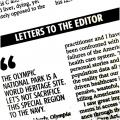
I’d like to reply to some of the online comments on my letter in November 2018 in reply to Rob White (How the EU works, Letters, November 9) that was published on your website.
READ MORE: Letter: How the EU works
Firstly, I wrote, “The European Parliament has published its study of the implications of new rules to end the wasteful practice of throwing fish overboard”.
One of the comments was that not throwing fish overboard is “obvious” and “all the European Parliament does is write studies”.
Well, there are considerable implications.
A rule that says “all you catch you must bring in to port”. What could it mean if you are a fisherman and you have used up all of your yearly quota for, say, cod?
It could mean that you can’t go fishing at all for the rest of the year, even for haddock, because you might accidentally catch some more cod. The unpredictability of fish catches is a problem.
Secondly, I wrote “The European Union single market bans illegal timber, helping to protect rainforests”.
A comment was, “if it’s already illegal what’s the point” and “get rid of this bureaucracy”.
Well, there is now a certified timber scheme between Indonesia and the EU. A consistent scheme makes it easier for Indonesia’s logging companies to comply. It makes it easier to enforce in both Indonesia and in the European market.
That reduces, yes, reduces, bureaucracy. It improves standards. It helps suppliers, buyers, regulators and the environment.
Phil Jones
Member, European Movement UK



Comments: Our rules
We want our comments to be a lively and valuable part of our community - a place where readers can debate and engage with the most important local issues. The ability to comment on our stories is a privilege, not a right, however, and that privilege may be withdrawn if it is abused or misused.
Please report any comments that break our rules.
Read the rules hereLast Updated:
Report this comment Cancel